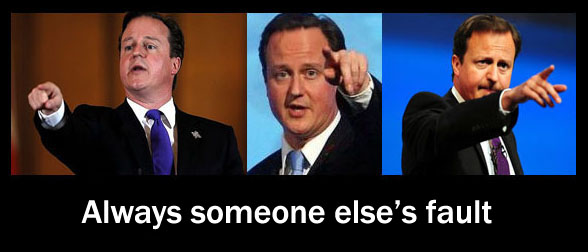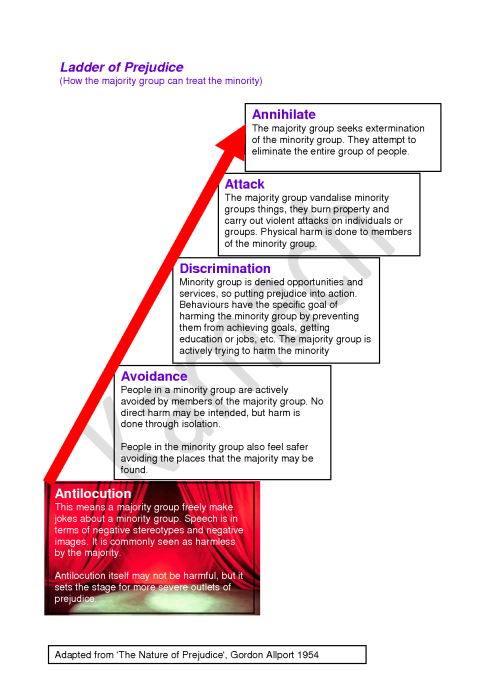
A lot has been written in recent years about the value of Behavioural Economics in nudging the Electorate to do make good choices. A lot less has been achieved in the area of nudging politicians. Politicians are pivotal in society and nudging them will have far greater impact on society than piecemeal and dissipated nudging of Citizens. Indeed the nudging of politicians is not only the most rational and efficient way to achieve positive outcomes for society but also ensure that both politicians and Electorate are of one mind when it comes to being “all in it together”.
The Choice Architecture of Parliament has, for centuries, favoured unaccountable and poor decision-making in isolation from the actual needs and wants of the Electorate. Indeed, women only acquired the right to vote in 1918, voting only became one person one vote in 1948 and the franchise has only been extended to 18 year olds since 1969, in the United Kingdom. Democratic participation has never been the primary aim of Parliament, for reasons that can be understood through a consideration of Behavioural Economics: Parliament is about the allocation and distribution of Power.
Reducing the tyranny of choice.
The sheer number of choices available to politicians is a tyranny.
From expenses for underpants to abstaining from critical votes, the sheer amount of time and energy devoted to Politicians’ choices diminishes political utility. The Electorate can become the Choice Architects of Parliament by democratically limiting alternatives and providing decision support tools.
Traditionally, Parliament has excluded the Electorate from many Parliamentary processes. Indeed with around thirty-five million eligible voters, Parliament can only function by being efficient. The true scale of the tyranny of choice can be expressed, mathematically, and this gives the Choice Architects of Parliament powerful tools to determine how efficient Politicians are being. The exclusion of the Electorate from some Parliamentary processes and admission into others can end the moral hazard and confirmation biases inherent in a closed decision-making group.
Queueing theory has its origins in research by Agner Krarup Erlang when he created models to describe the Copenhagen telephone exchange and has provided such important results as the Queueing Rule Of Thumb, which can be used to determine how many Politicians are required and if a Politician is efficiently making choices. This reduction of the tyranny of choices only begins the radical reform of Parliament by transforming Politicians into fit for purpose Decision Makers whose optimisation of resources for the Electorate is a Public Good. Identifying which Politicians are failing the Electorate in aggregate becomes a simple task of a well designed Randomised Control Trial.
Defaults
A large body of research has shown that, paribus ceteris, Politician are people and choose options that are presented as a default.
The Choice Architects of Parliament will create the defaults of deselection and prosecution for Politicians cause harm to the Electorate. The Precautionary Principle, applied to Legislators will ensure the best choices are available to Parliament at all times.
Historically, the defaults presented to Politicians have been those defaults prepared by Think Tanks, Lobbyists, Consultants and the Civil Service. While there is nothing undemocratic about seeking the advice of Experts, the pool of expertise has diminished in recent years until it has, largely, become an unnecessary barrier to efficiency and a source of largesse for rewarding anchoring biases and bandwagon effects. Fundamentally the Choice Architects of Parliament will minimise the framing effect of these expert consultations which can result in failure by default as the direct outcome of the Dunning-Kruger Effect discovered in a range of notionally independent Think Tanks, Lobbyists and Consultants.
In contrast to genuinely principle based policies, Politicians have come to rely on the self-assembly policies, for which consultations provides defaults and instructions, in the same way that people value furniture that they have assembled themselves. Research has shown that people value a book shelf more if they assemble it themselves than if it is already assembled. The Political Pareidolia of Consultation Defaults will be ended by the Choice Architects of Parliament by evidence based defaults for Politicians.
A simple and enduring evidence based default for Politicians is to be recalled from office should they choose a default purely because it is a default. In evidence based policy, default policies can be randomised in order to ensure that Politicians are not simply choosing the first option on the list. Research at the Department of Work and Pensions has demonstrated that Claimants understand and appreciate the value of sanctions in making good choices and there is no evidence that Politicians are not the same as Claimants. The Sanction Regime will be the Primary Default for Politicians in Policy Formation and no secret will be made of that; because, then, Politicians can make the right and informed choice and, importantly, feed back those choices to Think Tanks, Lobbyists, Consultants and the Civil Service with appropriate behaviours.
Choice over time
Choices where outcomes manifest in the future are influenced by several biases.
Politicians tend to be myopic, preferring present opinion poll or ideological outcomes at the expense of future concrete outcomes for the Electorate. This leads over exploitation of present day resources at the expense of the future. Political projections about the future tend to be inaccurate with uncertainty promoting overestimation of the likelihood of positive outcomes for vanity projects.
The Choice Architects of Parliament have several ways to structure choice architecture to compensate for or reduce these ideological and opinion poll biases. Where Politicians have an uncertain future, they are motivated to overestimate the likelihood of salient or desirable outcomes and the resulting poor choices cascade outwards into the Electorate with consequences that are, generally, unforseen by the Politician. By making all Political Choices by a politician contribute to the future wellbeing of the Politician, Policy will be driven to improve.
The default Sanction Regime is only functionally effective if the Sanctions escalate over time. The current Sanction Regime for Politicians consists of not being elected at the next General Election. There are rare occasions when a Politician resigns inducing a by-election. This is not a Sanction in the same way as a General Election as it is controlled by the Politician. Similarly, being Suspended from the House is a Sanction under the control of the Speaker.
Partitioning options and attributes
The ways in which options and attributes are grouped influence the choices that are made.
Option partitioning requires division of a budget into categories. The attributes of a category are clumped or divided according to Government Department and Ideology. Politicians have a tendency to claim resources are scarce and allocated equally across categories. By itemising ideologically acceptable attributes and aggregating ideologically undesirable attributes, Politicians managed consumption by managing the number of attributes into types of categorizations.
The Choice Architects of Parliament will undertake a root and branch review of ideological choices and manage Political expectations by recalling Politicians where their ideological categories do not match those of the Electorate. The choice tools available to Politicians will cease to be limited to those provided by Lobbyists and Think Tanks.
Indeed each Individual Lobbyist and Think Tank will cease to be treated as an attribute of Political Life in Parliament and become a Category within the Register of Members’ Interests. Similarly, each Elector will become a Category for each “Elected Representative”. This will ensure that Politicians allocate the scare resources of their time equally across Electorate and Special Interests. The consumption of Lobbying can, therefore, be managed by the Choice Architects of Parliament.
Avoiding attribute overload
Politicians would optimally consider all of a Policy’s attributes when deciding between options. Cognitive constraints, result in weighing attributes in the same way as choices. As a result, The Choice Architects of Parliament will choose to limit the number of attributes of a policy, weighing the cognitive effort required to consider multiple attributes against the value of improved Governance. In order to ensuring cognitive attribute overload does not occur, the number of Politicians will be increased by reducing the size of Constituencies. Thus Politicians will be both more accountable and less prone to attribute overload.
This presents challenges if Politicians ideologically commit to different attributes to the Electorate and so the Choice Architects of Parliament provide tools for sorting, informing and recalling Politicians. The principal means of avoiding attribute overload will become the Political Capability Assessment. Rather than belabouring the difficulties of partitioning attributes and categories, Politicians will be periodically assessed for their suitability by Political Activity Practitioners selected from the General Electorate.
Translating attributes
The presentation of information about attributes reduces the cognitive effort associated with representation and so reduces the failure of Politicians to do as the Electorate instructs. The Choice Architects of Parliament will accomplished this by increasing evaluability and comparability of attributes. The Choice Architects of Parliament will convert commonly used metrics into metrics Politicians are assumed to care about. Such as “Expenses per Majority” and “Lobbyists per Day”. Non-linear metrics will be transformed into linear metrics and evaluative labels will be added to numerical metrics, explicitly calculating consequences such as “Swing to deselection” and “probability of prison”.
The Choice Architects of Parliament
For too long, Politicians have avoided the reality of their situation. In particular, the finances of Parliamentary Politicians has been allowed to drift along making poor choices with poor consequences for Constituents.With the advent of Behavioural Economics it has become clear that something must be done to curb the poor choices of politicians.
Imagine how much easier it would be for a Minister to refrain from sending an aide out to purchase sex aids if all purchases of goods or services by all Politicians were restricted to the use of a Parliamentary Credit Card. By having a Parliamentary Credit Card updating a database in real time, Politicians can make good purchasing decisions and demonstrate their accountability in real time. The Independent Parliamentary Standards Authority would transform from being a bureaucratic nightmare into being a modern and efficient Politicians’ Financial Services Organisation.
Paperwork would be eliminated as transactions would automatically register and enter the public domain through the Independent Parliamentary Standards Authority Website. The Independent Parliamentary Standards Authority showing approval or rejection of expense items giving feedback to the Electorate in real time. Rejected items could be annotated quickly to ensure Politicians understand the consequences of their choices.
Politicians have always been accused of using the ambiguity of Parliamentary and Constituency Homes as a source of income. The difficulty of maintaining two dwellings is a common one that can result in suboptimal resource allocation. The resulting problem of spare rooms has been solved for a range of Benefits Claimants by adjusting the level of support available. The same principle, applied to Politicians, has a simple and elegant solution which helps them to avoid attribute overload – both in their own accommodation and in policy formation.
By housing Politicians in the Tower Blocks in and around the precincts of Parliament, the suboptimal resource allocation of resources to accommodation vanishes and Politicians are motivated to ensure the highest standards for accommodation within the constraints provided by the Tenant Management Organisation. By ensuring the Tenant Management Organisation is responsible for providing Tower Block Housing within Local Authority constraints, Politicians can both choose to relieve themselves of poor choices about maintenance and provide a pathfinder for excellence in housing choices over time.
While expenses and housing are major concerns, the single most important behaviour Politicians engage in is voting in Parliament. Poor voting decisions have serious, long-term outcomes that adversely affect the Electorate. Politicians who have expectations that decisions made in the first year of office will not have an effect in the fifth year of office experience no loss aversion. By following the Precautionary Principle, Politician who make poor voting decisions would have their term of office shortened thus bringing the date of their next election forwards. Sufficient poor voting decisions would trigger an early General Election. This ensures Party Whips are given the opportunity to avoid loss though an early election with motivation to ensure Politicians make good decisions at all stages of a Parliament.
The danger of applying a time tariff to voting decisions is that Politicians will attempt to game the system with poor decisions. In order to ensure Politicians are as motivated as their Party to make good decisions, Randomised Control Trials will be run against each and every vote in Parliament. Politicians are randomly matched against a representative sample of voters from their Constituency and their actual vote. Politicians who are so selected will be obliged to discuss their decision-making during a Political Capability Assessment.
In order to ensure that the Political Capability Assessment is fair and realistic, the Political Activity Practitioners will be selected from the General Electorate and Expertise will be excluded in order to ensure avoidance of The Political Pareidolia of Consultation Defaults. In line with the practices of the Work Capability Assessment process, there will be a rejection rate for all assessments. The rejection rate will be evidenced based on the number of people who voted against the Politician at the last election. The ordeal of appealing against the Political Capability Assessment will focus Politicians on making better decisions and becomes a necessary part of political life.
The Choice Architects of Parliament are in their early days and have little, if any, concrete proposals developed to the state of implementation. Randomised Control Trials have a role to play in the selection and election of Politicians prior to any Parliament. Not only are Politicians going to be more efficient and effective at making decisions they will be making better decisions. The kind of decisions that they can be responsible for. Because they will be held to be responsible and that means there will be consequences for all they do.
Independent Standards Authority MP costs. Interactive map.
Article by Hubert Huzzah.
Picture: George Grosz and John Heartfield: “Jederman sein eigner Fussball”, 1919.












